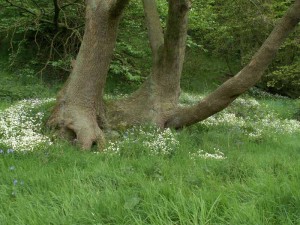Ash dieback disease has been identified in Norfolk. The Wildlife Trust for Birmingham and the Black Country is appealing for help spotting the spread of the infection.

In a letter sent today to the Secretary of State, René Olivieri, Chair of The Wildlife Trusts, said that it is clearly very disappointing that failure to ban the import and movement of ash trees has resulted in the disease spreading into the natural environment – and one of Norfolk Wildlife Trust’s nature reserves – and encourages the Secretary of State to:
- Introduce a mandatory ban on imports of ash trees to prevent more disease entering the country and on the movement of ash trees around the country;
- Assess how far the disease has spread and halt it from spreading further around Britain;
- Set up an Emergency Summit, to co-ordinate action to halt the spread of the disease, to bring together appropriate scientists, commercial interests and representatives of landowning bodies including conservation organisations.
Olivieri said: “We are concerned about the spread of this disease as the 47 Wildlife Trusts around the UK manage around 93,000 ha of land which includes woodland. It now seems likely that the disease is present at Norfolk Wildlife Trust’s nature reserve, Lower Wood Ashwellthorpe, an ancient woodland and a Site of Special Scientific Interest.
Simon Atkinson of The Wildlife Trust for Birmingham and the Black Country added: “Ash trees are a really important feature in our local landscape and we are ensuring that our reserves officers keep a close eye on the health of them on the sites we manage. In woodlands they play key roles, such as supporting rare woodland flowers, a rich invertebrate fauna and important lichens. Their loss would have a dramatic negative impact on our natural environment and the look of green spaces around Birmingham and the Black Country.”
[otw_is sidebar=otw-sidebar-1]